Think Indigenous is a conference intended to bring together educators doing amazing things in our community. Inspired by media outlets such as RedManLaughing and Ted Talks, Think Indigenous promises to provide a unique and inspiring Education Conference experience. This year we are proud to provide the following Educational Difference Makers to the TIEC 2017 stage. More speakers will be added to the list when confirmed.
Host - Ryan McMahon

Keynote & TIEC Talk Speakers
Leroy Little Bear
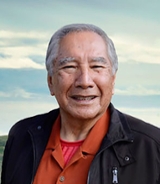
Shelley C. Lowe
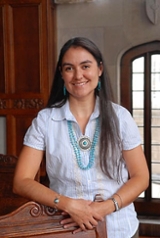
Edna Manitowabi
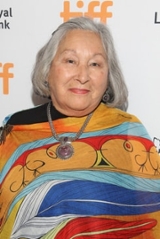
Sol Sanderson

In 1972, under the leadership of Sol Sanderson, the Federation of Sovereign Indian Nations (FSIN) took on a policy of First Nations control over First Nations education. Sanderson's work helped create ground-breaking institutions including the First Nations University of Canada, the Saskatchewan Indian Institute of Technologies and the Saskatchewan Indian Cultural Centre. At the time, it was a vision that conflicted with that of the federal government's Indian Affairs (now called Aboriginal Affairs and Northern Development Canada).
Sanderson was FSIN chief from 1979 to 1986. For more than 50 years, he has worked to assert political rights for First Nations people. In 1982, he played a key role in having them included in the Canadian Constitution, also helping ensure treaties were entrenched in it and recognized internationally.
Sanderson — a member of the Chakastaypasin Cree First Nation — was also a founding leader of the Assembly of First Nations and active in the Treaty Land Entitlement process in the province.
He also claims to have coined the term First Nations, to replace the word Indian and establish the group as a founding nation of Canada, in the 1980s. Government of Canada archives say the term came into use in the 1970s.
Red Talk Speakers
Lillian Crier
Cort Dogniez
Cort Dogniez is a proud Métis man born and raised in Saskatoon. He is a graduate of the Indian Teacher Education Program and possesses a Bachelor of Education and Post Graduate Diploma in Indigenous Studies. He is a retired teacher currently in the position of the Métis Education Program Leader based at St. Michael Community School but available to all Greater Saskatoon Catholic Schools. His role supports teachers as they connect the curriculum to Métis history and culture while engaging the Métis community in meaningful ways. The development of a Métis Education Model has provided direction for the deliberate inclusion of Métis perspectives through monthly themes. This is Cort’s ideal post retirement job.
Kanen'tó:kon Hemlock, Mohawk Nation, Kahnawà:ke, Bear Clan.
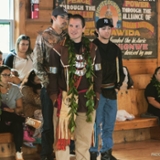
Karla Jessen Williamson
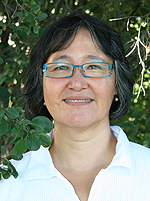
Karla Jessen Williamson, PhD (University of Aberdeen) is born a ‘kalaaleq’ - an Inuk from Greenland. She received her primary education in Greenland, and attained her high school education in Denmark. Since moving to Canada, Karla undertook Bachelor’s and Master’s Degrees in her third language (English) through the University of Saskatchewan. Her Master’s thesis dealt with Inuit child-rearing practices as these relate to Inuit relationship to the land in Pangnirtung, Nunavut. Her Doctoral studies at University of Aberdeen in Scotland involved studying gender relations in post-colonial Greenland Inuit communities from an emic point-of-view, offering insight on social construction of gender relations.
Dr. Jessen Williamson was appointed Executive Director of the Arctic Institute of North America at the University of Calgary, the first female Executive Director since its inception in 1945. Karla taught at the University of Saskatchewan for 16 years on matters dealing with Canada’s multiculturalism, antiracism and Aboriginal epistemologies as these relate to education.
Harry Lafond
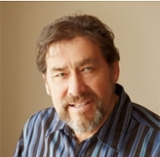
Harry J. Lafond is the Executive Director of the Office of the Treaty Commissioner. He has a wide range of experience in the community, in politics and in academics, which he brings to the OTC. He has been Chairperson for the Board of Trustees First Nations since 2003. Previously, he served his Nation as Chief (1990-2000). Harry has worked extensively in the area of education as the Director of Education and earlier as Principal of Kihiw Waciston School at Muskeg Lake.
Harry's academic education includes: B.A.; B. Ed, and an M.Ed. He was appointed to serve on the Senate of the University of Saskatchewan (1995-2002) and was also appointed to the national Federal Task Force on Education (2003). Family is a priority and Harry spends many hours with his children and grandchildren teaching them about being Cree.
Corey O'Soup
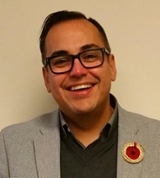
Corey has had an extensive career working on behalf of children and youth in his roles as an educator, Senior Policy Analyst for the FSIN, Provincial Superintendent for the Ministry of Education, Senior Manager for the Alberta Ministry of Education, Executive Director for Education/Post-Secondary Education and Training for the FSIN and as the First Nations and Métis Advisor for the Ministry of Education. In the role of First Nations and Métis Advisor, Corey took the lead on the government's response to the fatal shooting at a school in La Loche in January 2016.
As the Advocate for Children and Youth, Corey's priorities will be to find ways to reduce the number of First Nations and Métis children and youth in care and to improve mental health services in Saskatchewan, especially in the north where he has promised a special report on the issues surrounding youth suicides. Corey was born and raised in Saskatchewan, and is a member of the Key First Nation. Corey and his wife, Jacinda, have five children.
Chante Spiedel
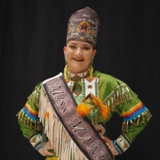
The title of Miss Manito Ahbee honours the memory of the Missing and Murdered Indigenous Women & Girls. Every four years the family of an Indigenous woman who was taken much too soon is honoured by the Manito Ahbee Festival. The first four years were dedicated to Felicia Solomon-Osborne, then honoured Cherisse Houle, and now Lorna Blacksmith.
The Manito Ahbee Festival is honoured to have selected Chante Speidel as the 2017 Miss Manito Ahbee Youth Ambassador. Chante Speidel, Lakota name is Red Road of Life Woman. She is a proud Cree and Lakota woman, and has spent my whole life learning the rich culture, customs and traditions of her heritage.
Welcome to the Think Indigenous conference
In Youthful Spirits, Chante
Kinanâskomitin, philámayaye
https://www.manitoahbee.com/about-us/miss-manito-ahbee/about
Tamara Starblanket
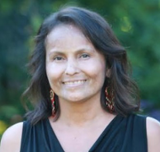
Tamara Starblanket is Spider Woman, a Nehiyaw from Ahtahkakoop First Nation in Treaty Six Territory. Tamara holds an LLM from the University of Saskatchewan, and an LLB from the University of British Columbia. She teaches and coordinates the Aboriginal Justice Studies Program at the Native Education College. She was recently elected Co-Chair of the North American Indigenous Peoples' Caucus (NAIPC). She is a former Director of Policing and Research and Development at the Federation of Saskatchewan Indian Nations.
More speakers will be updated when confirmed.
Mylan Tootoosis
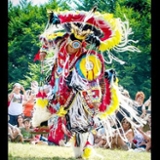
Mylan Tootoosis is Plains Cree-Nakota from Poundmaker Indian Reserve in Treaty Six Territory. He is a Tribal College Alumni and earned his Bachelors of Arts in Indigenous Liberal Studies from the Institute of American Indian Arts in Santa Fe, New Mexico. He completed his Masters of Arts in Indigenous Governance at the University of Victoria and is currently a Doctoral student in the Department of Indigenous Studies at the University of Saskatchewan, his research concentrates on decolonization and The Political Ecology of Contemporary Indigenous Prairie Livelihood in Treaty Six Territory. He has gained insight and experience in various forms of land based education programs in Costa Rica, Hawai’i, Belize, and Chiapas, Mexico. He currently lectures and teaches at the University of Saskatchewan as a Graduate Student.
Mylan is also a certified Life Skills Coach and Creative Life Coach. He began to travel with his late father, Arsene Tootoosis at the young age of 7 and has spent much of his youth working along side his parents who are the founders of Red Echo Associates (1993). He currently develops and delivers Life Skills programs and workshops for Indigenous youth and communities as a way to fund his way through his PhD program.
TIEC 2018 Youth Ambassadors